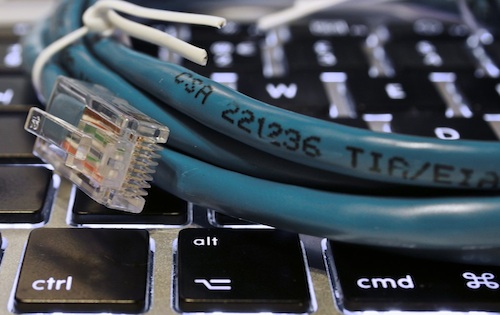
Although there is still some time to go before SA runs out of Internet addresses based on the outgoing Internet Protocol version 4 (IPv4), not enough Internet service providers are taking the move to the new Internet Protocol version 6 (IPv6) seriously enough.
Mark Elkins, a director at UniForum and a board member of AfriNic, says only half of the country’s service providers are ready for the switchover. UniForum manages all .co.za domain names and AfriNic is responsible for distributing Internet addresses to service providers, websites and businesses.
Though SA still has a long way to go before it is ready for the change from IPv4 to IPv6, Elkins says there are positive signs that the country is beginning to take the matter more seriously.
“When we did a poll at a conference a year ago, only 20% were ready to make the change, 30% were implementing plans to make it happen, and about 20% had no idea what IPv6 was,” he says. More recently, indications are that about 50% of service providers are now ready.
IPv4 has been an integral part of what makes the Internet work since the early 1980s. However, last week the final block of IPv4-based Internet addresses were allocated to several regional address distributors.
IPv4 allows for 4,3bn unique addresses, which seemed like more than enough 30 years ago but is now known to be inadequate. With a boom in Internet access and personalised websites, the number of available addresses for each region will soon be exhausted.
An IP address has to be allocated to every user connecting to the Internet, to every server providing content on the Web, and to every device that plays a role in routing data online.
However, the introduction of IPv6 will increase the number of unique addresses to 340 undecillion (that’s 3,4 times 10 to the power of 38).
Elkins says SA service providers have to start thinking seriously about how to migrate their customers to the new protocol given that use of IPv4 will be phased out in about two years’ time.
He says Africa still has a little leeway because it been assigned a new block of IPv4 addresses. The continent tends to use up these allocations more slowly than some other parts of the world.
“The danger, though, is that other regions will be migrating sooner because they will have run out of addresses. If those users come to SA they may not be able to access some of the Internet content they would normally,” he says.
He points to the Asia-Pacific region, which will have used up its final allocation of addresses in about six months. “So, in reality, we also only have six months to start migrating properly,” he says.
The new protocol effectively creates a parallel network to the Internet people use now, so those using IPv4 addresses will not necessarily be able to see services that use IPv6 addresses.
However, some SA service providers have made provision to allow the two protocols to “talk” to each other. One of these providers is Telkom, which has implemented a “tunnel solution” until IPv6 gains more traction in the market.
Telkom’s broadband digital subscriber line network is one of the country’s larger networks that will need to be IPv6 ready. “Telkom is responsible for quite a few eyeballs on the Internet,” says Elkins.
The fixed-line operator says: “Taking into account the limited demand for IPv6 services and the immaturity of the global IPv6 management systems, the tunnel solution was a cost-effective and short-term solution that could be deployed quickly with minimal impact on both customers and on Telkom.”
As the new protocol becomes more widely used, Telkom will probably begin moving towards full IPv6 implementation, since the tunnel solution does not scale well.
Elkins says one of the biggest challenges facing service providers is their lack of experience in IPv6. “They need expertise to manage the transition and that is where the biggest cost for most businesses will be,” he says. — Candice Jones, TechCentral
- Image: David Davies
- Subscribe to our free daily newsletter
- Follow us on Twitter or on Facebook

